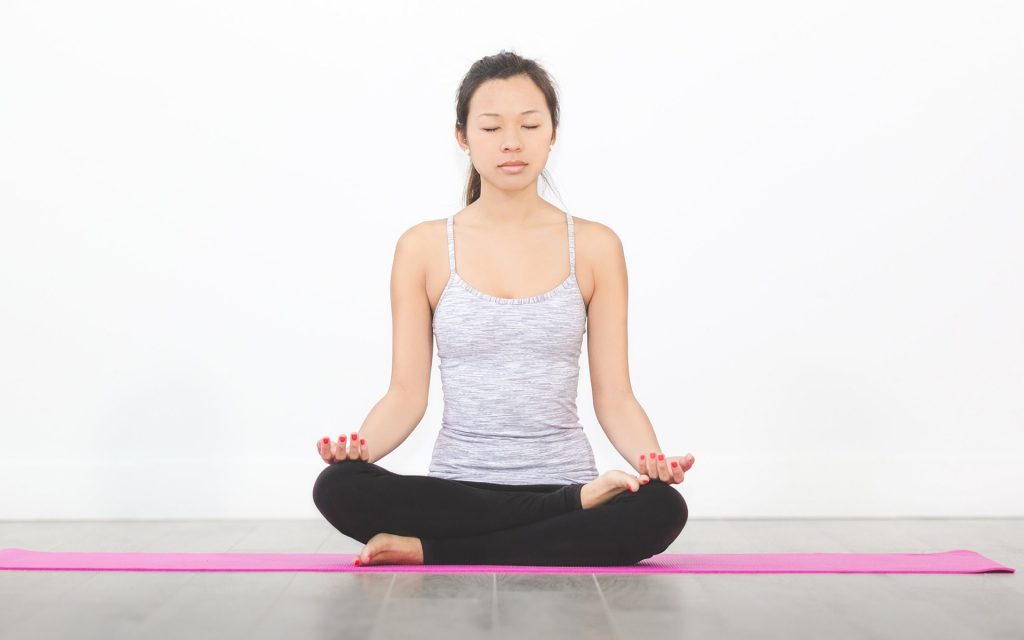We’ve all heard the word “meditation” before, but that doesn’t mean we actually know what it means. Just what exactly is meditation?
What Is Meditation?
Although there is a multitude of variations, meditation can be defined as the act of training the mind. The practice is also known as “the act of thoughtless awareness.”
There are many different types of meditation. A few of the most popular kinds include concentration meditation, guided meditation, and mindfulness meditation.
Concentration Meditation
In concentration meditation, you focus on one thing in particular. For example, you could begin meditating while watching the dancing flame of a candle or the smoke rising from a stick of incense. You want to try to keep your mind from wandering, pushing out extraneous thoughts as they come and refocusing your attention on the focal point.
Guided Meditation
Guided meditation can be done alone or as a group. With this style of meditating, one person (or, more often, the voice of someone on a recording) “guides” the meditator, describing what you should try to picture in your mind as the journey progresses. There are many guided meditations, and apps, available for free online.
Mindfulness Meditation
With mindfulness meditation, you don’t try to keep thoughts from wandering through your mind. Instead, you try to simply take note of the random thoughts that occur to you and allow these miscellaneous ideas to come and go from your mind freely. You are training your mind to let go of those random thoughts that intrude on you while you are trying to get on with life.
Why Should I Meditate?
Studies have found that people who meditate experience less stress and anxiety than those who don’t. Those who meditate also experience deeper levels of relaxation than their non-meditating counterparts. These findings don’t rely purely on subjective self-report either.
Physical findings back up the assertion that people who regularly engage in this practice experience fewer symptoms of stress and anxiety. For example, people who meditate have lower blood pressure, improved blood circulation, lower heart rate, less perspiration, slower respiratory rate, and lower blood cortisol levels.
While meditation can help reduce anxiety, it is vital to recognize that it is not a cure-all. If you have an anxiety disorder or experience panic attacks, it’s essential to have a very honest discussion with your doctor. There is no need to suffer in silence when there are treatments available that can help. You may still find meditation is a valuable tool, but it is no replacement for professional medical care.
Beginning Steps for Meditating
If you’re ready to give meditating a try, you can experience less stress and anxiety in your life in just seven short minutes. So, how do you go about getting started if you have never tried meditating before? Actually, you may find it’s much easier than you might think.
- Begin by setting the mood. Turn the lights down low and get rid of as many distracting noises as possible. Turn off the television and listen to relaxing music or just enjoy the sound of silence for a change. Maybe light some candles or incense.
- Sit or lie down in a comfortable position with plenty of support for your body. Loosen any tight clothing that is constricting.
- Close your eyes and breathe naturally. Try to relax your body. Start with your toes. Clench the muscles in your feet and then relax them. Next, tighten your calf muscles and then feel them release. Gradually move your way up and relax each piece of your body.
- Now, just breathe and focus on your breath. Clear your mind and think only of the feeling of the air that is moving in and out of your body. Feel the air go in through your nose and fill your lungs. Then feel the air as it moves upwards and out of your body through your mouth. In and out. Over and over again.
- Try to think of nothing except for your breathing. If your mind wanders, don’t worry. Everything takes practice, even meditation. Remember, you are training your mind after all. Don’t allow yourself to become discouraged if random thoughts enter your mind. Simply bring your attention back to your breath.
That’s it, that’s all it takes to start meditating and enjoying all the benefits that come along with it. It really is as easy as breathing for a mere seven minutes a day. So, sit down on your bed and get comfortable. Take a deep breath and start reducing your stress through meditation today.



very nice read, great content!